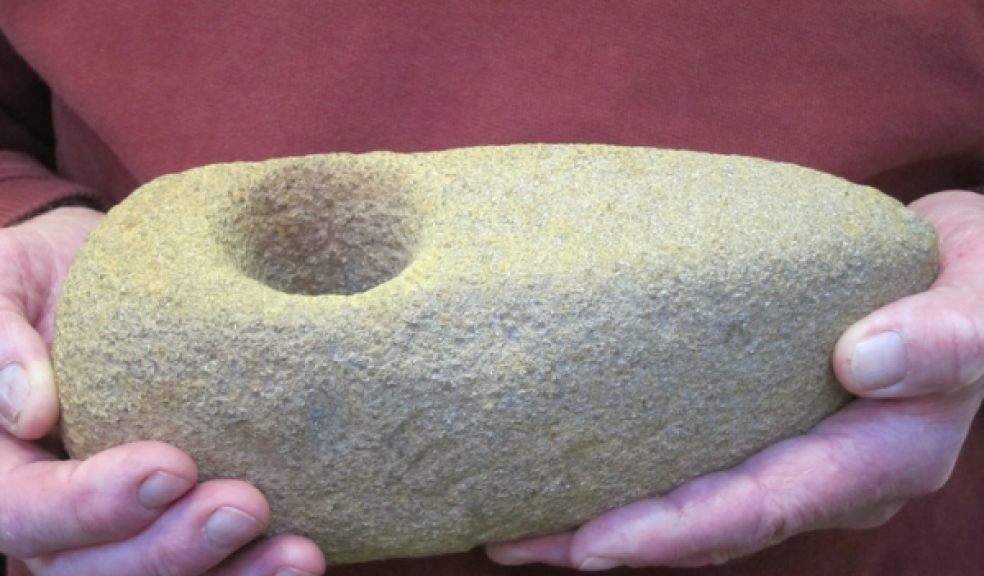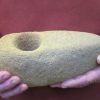
Stone Axe Hammer - just passing through
RAMM’s geologist is helping research a stone axe hammer found in Lydford in the 1960s. Its finder recently brought the axe to the Devon Finds Liaison Officer for identification.
She turned to RAMM to help examine the stone to determine where it came from and to formally record it with the South West Museums Implement Petrology Group.
Axe hammers are quite rare; only about sixteen have been recorded from Devon and Cornwall, and curiously most are not of local rock. They are rarely found in an archaeological context so that their age and use remains uncertain. They may date to the early Bronze Age. This example weighs in at 3.05 kg and would be rather unwieldy as a weapon, particularly as the hole for the shaft is not symmetrically placed.
The examination will involve the preparation of a thin section (microscope slide) of the rock so that it can be more precisely identified. To avoid visual damage to the axe the sample for sectioning is taken by drilling out a narrow core. The hole is then filled and the outer surface from the core is cut off and replaced. This together with the judicious use of coloured paint almost completely conceals the sampling point.
The Devon Finds Liaison Officer is based at the University of Exeter and records archaeological finds made by members of the public in Devon.
Finds Liaison Officers are supported by the Portable Antiquities Scheme, a DCMS funded project to encourage the voluntary recording of archaeological objects found in England and Wales.

















